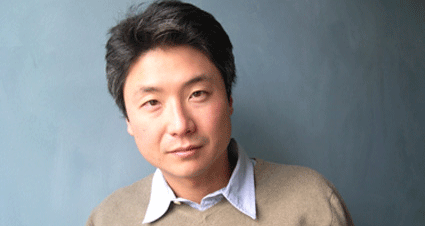Chang-rae Lee Provides Insights on Future

“I usually start one thing, get really depressed about it and waste a lot of time,” Chang-rae Lee said during his Living Writers talk. Readers around the world are glad that he wasted a lot of time, otherwise he would not have produced On Such a Full Sea, his latest novel that he categorizes as a folktale.
Lee, a professor at Princeton University and a Korean American novelist, has written five books. He has won the PEN/Hemingway Award for “Native Speaker,” the Asian American Literary Award for “A Gesture Life,” the 2006 Asian/Pacific American Award for Literature for “Aloft” and the 2011 Dayton Literary Peace Prize for “The Surrendered.” His latest novel, On Such a Full Sea, was published earlier this year.
“It wasn’t the book I had originally set out to write,” Lee said.
He had originally planned to write a book about contemporary China, even going so far as to visit a labor factory to conduct his research. He described how visiting this factory that produced tiny motors, like the ones in DVD players, allowed him to get a feel for the actual place, which is something that looking at pictures on the internet could not have accurately done. Yet, when he sat down to write, the product wasn’t what he was hoping.
“It was solid journalism,” Lee said. “But I didn’t have a novelistic angle that interested me.”
It was on a train ride through east Baltimore that the idea for On Such of Full Sea first sprang into Lee’s mind. As he rode through the city, he noticed all of the empty houses, and had the idle thought of bringing in an entire community of foreigners to populate this city. Yet, in order to make this idea a reality, he knew that we couldn’t possibly be living in the America that we live in today. So, he set his novel in the future. He began to think of everything that worried him about society now, and wondered what the future would look like if we stayed on this path. Thus, B-Mor, the production facility in which his novel is set, was created.
After reading from the beginning of On Such a Full Sea, Lee answered questions from the audience. He began by describing his choice of writing with a first person plural narrator. His novel mainly follows a young girl named Fan, who leaves her sheltered community of B-Mor to find her boyfriend Reg. Fan runs into all kinds of trouble and meets many untrustworthy characters on her mission. Yet, in the end, this book is still told from the point of view of the community that she leaves behind.
“I guess I wanted to explore the idea of that conscious,” Lee said, referring to the consciousness of the community. “That it would know everything about this story, but also that it would sometimes be confused, not about the plot, but about how they feel.”
He explained how the narrator is, in a sense, the entire community of B-Mor, but at times it is also just a few people. He didn’t want one voice to be representative of the whole community, and so a few different voices come through the “we” of the narrators.
“This book is all about my opinion,” Lee said.
Lee wrote this book to spell out his anxieties about society, namely regarding income, healthcare, environment, class, death of the imagination and even greed. While this book does address all of these issues that may corrupt our future society, it is also about folktales, legends and learning how to live.
The problem with today, Lee explained, is that we are all so savvy with our legend-making. People even engineer their own viral videos in an attempt to leave a mark on the world, and in a sense, they do so to forget who they are. Yet, in On Such a Full Sea, the legend-making is more to help the characters discover who they are.
“The folks in this book haven’t figured out who they are yet,” Lee said. “And they’re desperate to know.”






